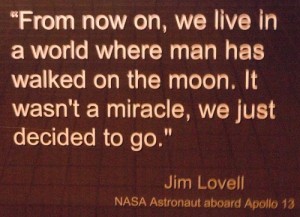This excerpt is from a broader interview by Forbes on Piracy, Tinkering and the Future of the Book. I’d encourage you to read the whole article, but I just wanted to pick out the bit about piracy as it’s particularly insightful.
For background: Tim O’Reilly is founder of the publishing company bearing his name, which is very well known in the IT/tech sphere – they’ve published a huge range of books over several decades now. They also organise conferences.
O’Reilly has removed DRM restrictions from its ebooks. And he explains why:
Q: On all your titles you’ve dropped digital rights management (DRM), which limits file sharing and copying. Aren’t you worried about piracy?
TO: No. And so what? Let’s say my goal is to sell 10,000 copies of something. And let’s say that if by putting DRM in it I sell 10,000 copies and I make my money, and if by having no DRM 100,000 copies go into circulation and I still sell 10,000 copies. Which of those is the better outcome? I think having 100,000 in circulation and selling 10,000 is way better than having just the 10,000 that are paid for and nobody else benefits.
People who don’t pay you generally wouldn’t have paid you anyway. We’re delighted when people who can’t afford our books don’t pay us for them, if they go out and do something useful with that information.
I think having faith in that basic logic of the market is important. Besides, DRM interferes with the user experience. It makes it much harder to have people adopt your product.
Software company Borland actually used a similar approach over 25 years ago. They sold their software quite cheap (compared to competitors) and lots of it was copied. However, aided by the awareness from the copying and the low price, the adoption was huge and thus they captured a huge share of the paid market.
Contrast this with companies that spend a lot of time and effort in to copy-protecting their software which mainly hinders their legal clients, and pursuing illegal users – an effort which, while legally valid, does not score any PR points. Since the actual cost of copying is 0, it makes much more sense to use this to your advantage. As Tim writes… he doesn’t mind if there are a 100,000 copies out there, he’s still sold his 10,000 copies – or more! And that’s the point: by taking this approach, he maintains and grows his business in a positive way, and doesn’t have the overhead of development or legal funds for copy-prevention. What applied to software has now moved on to ebooks (and of course, audio and video).
All this may initially feel a bit icky if you come from a traditional “physical item” perspective which makes “theft=theft”, and I appreciate that, but the context is completely different. Of course you want to reap the rewards for your effort. The cost of copying bits is essentially zero. Fact is that people do (want to) pay for good stuff, even if it’s not everybody. If you focus on that, you don’t really lose out if others also get a copy “for free”. Mindshare is valuable too.



